Newsletter Signup
Stay up to date on all the latest news from Boston.com
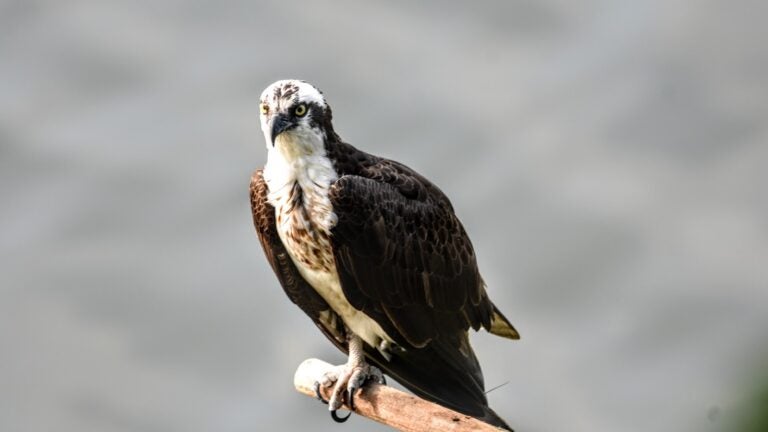
Earlier in the summer, the United States Department of Agriculture removed three osprey eggs from a boat dock in Chatham and delivered them to Wild Care, a wildlife rehabilitation center in Eastham.
Meanwhile, a woman in Mashpee notified Wild Care that she has an osprey platform with a female who returns yearly to lay her eggs, but the eggs haven’t hatched since 2018.
So, within two hours of removing the nest in Chatham, Stephanie Ellis, the executive director of Wild Care, drove the three viable eggs in an incubator to the infertile osprey in Mashpee.
Two weeks later, she received a text saying, “We have two chicks!”
The osprey diligently took on the role of foster parents.
In late July, the platform shifted, and the nest fell. One chick survived. The platform was repaired, and the parents returned.
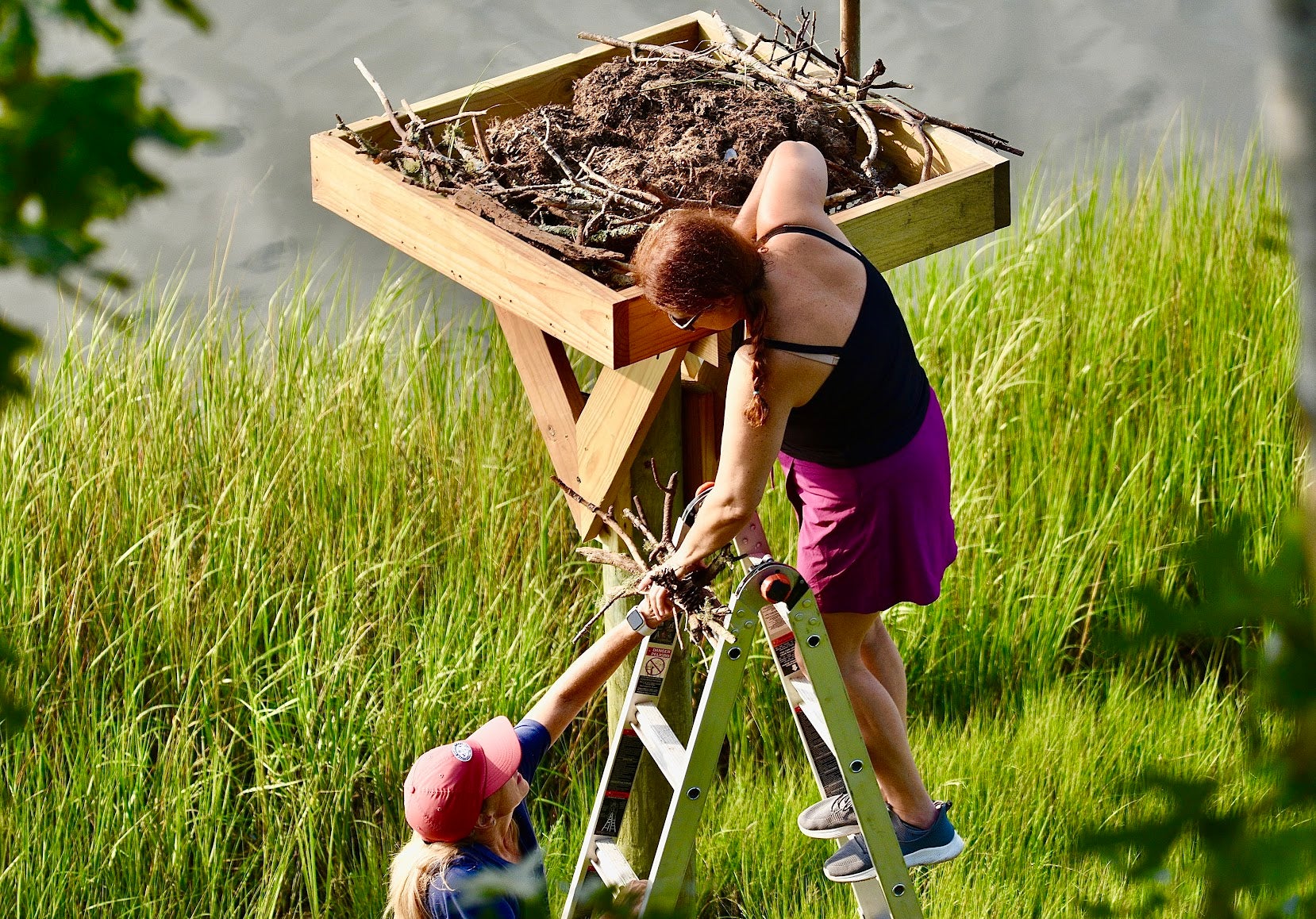
The harrowing experience was one of many for Ellis this summer. So far this year, she has rescued six osprey that she paired with foster parents across the Cape.
Rescuers saved the birds from nests set on fire along electrical lines, blown down, or in precarious places that couldn’t be rebuilt for this year’s nesting season.
“It’s an ongoing thing,” said Ellis. “I’m sort of playing an osprey God.”
According to Mark Faherty, the science coordinator at Mass Audubon, ospreys return to the Cape in late March and early April and stay until September, when most return to their wintering grounds in South America.
“I feel so good about what we are doing,” Ellis said.
However, this problem will only worsen as more ospreys move to the area and nest on human infrastructure such as power lines.
“It’s a complicated puzzle,” said Ellis. “I am concerned, but it’s a good problem to have.”
In the 1970s, the Cape was down to one or two pairs of nesting ospreys. It marked the end of the spraying of DDT, an insecticide that threatened wildlife, particularly birds.
Following the ban in 1972, volunteers brought chicks to locations in New York, Connecticut, and the West Port River along Buzzards Bay and Martha’s Vineyard in Massachusetts.
Volunteers erected poles with platforms to welcome the birds back.
“Individuals had an outsized impact on the osprey comeback,” Faherty said.
He said the Cape now holds the largest population of ospreys, with samplings showing the birds hatching two to three chicks per nest yearly when they don’t need to. The rate of growth continues to be “super high.”
“It seems exponential,” Faherty said.
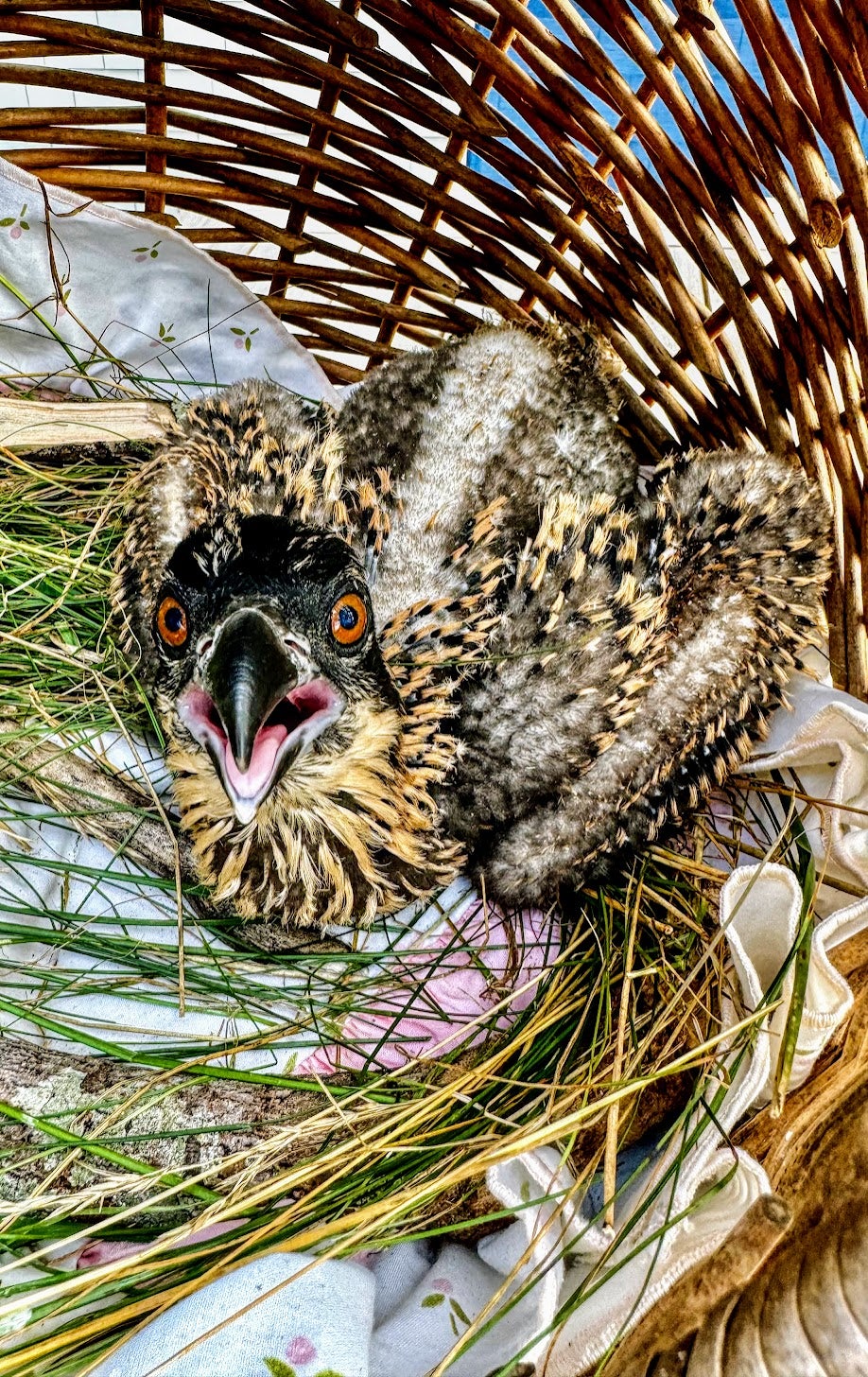
Faherty estimates that there could be more than 500 ospreys on the Cape. The sheer amount of coastline, kettle ponds, and estuaries draw them to the area, he said.
In addition, there has been a push to bring back the herring, a food source for the birds.
Plus, people take care of the ospreys here, with the erection of poles and platforms that allow them to nest safely without worrying about major prey that could easily reach them in a tree.
“It is a big success story, and with that comes conflict with humans,” Faherty said.
Ospreys commonly nest on power line infrastructure, which causes fires, power outages, and singed and dead ospreys.
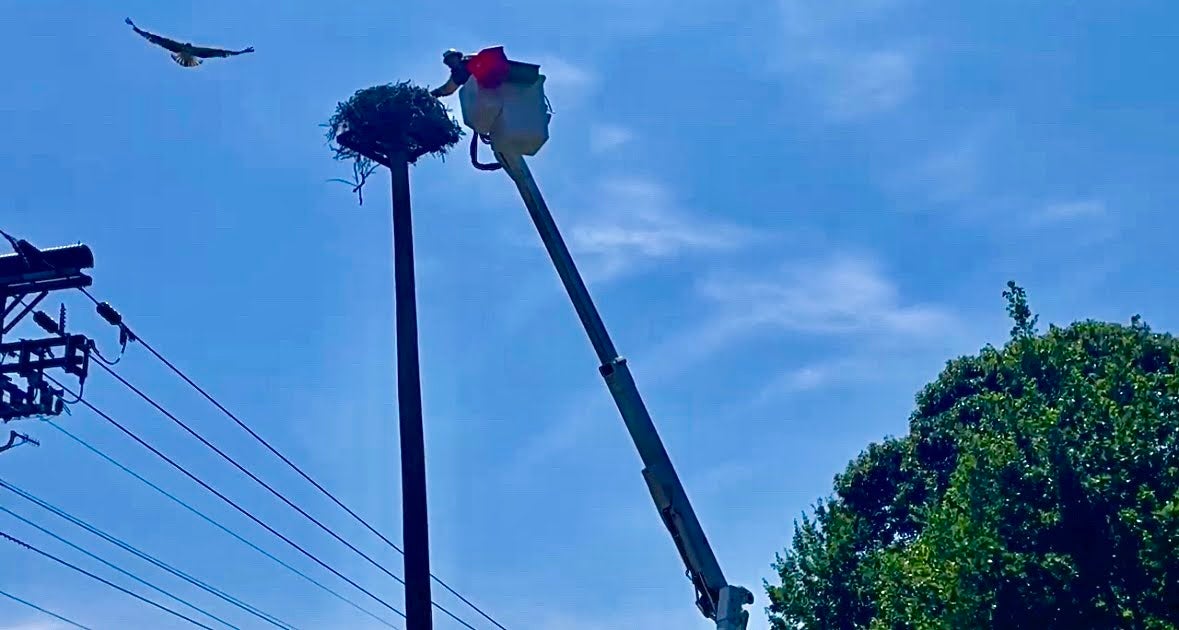
Mass Audubon has worked with Eversource for several years to coordinate reportings of dangerous osprey nests and their removal once the nesting season is over. Since the birds return to the same site yearly, Eversource also sets up deterrents.
Ospreys don’t only use the powerlines. They also nest in cell towers, docks, baseball field lights, and rock edges near marshes.
“They get used to nesting on human infrastructure and don’t look back,” Faherty said.
The best solution is to take down a nest, place a deterrent and then erect an alternative pole for the ospreys to use. However, that last part — putting up a new pole — is easier said than done.
Faherty says it takes good timing — after the ospreys have left — plus funding and support to erect them.
Faherty said they need to develop a plan to change the existing power line pole configuration so that “an entire electrical grid does not invite osprey.”
It seems like ospreys have become synonymous with the Cape.
“Everywhere we go, there is an osprey nest,” said Ellis. “It is something very special to see.”
Stay up to date on all the latest news from Boston.com


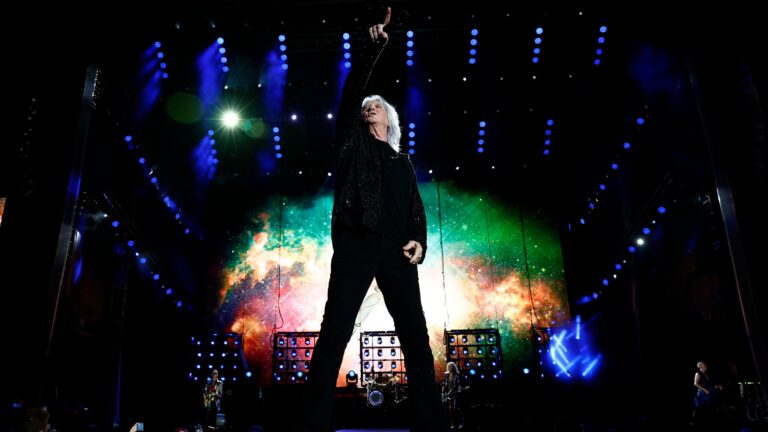
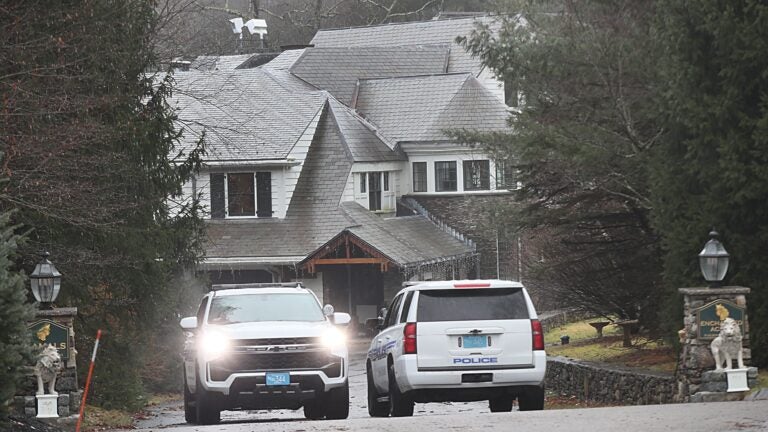

Stay up to date with everything Boston. Receive the latest news and breaking updates, straight from our newsroom to your inbox.
Be civil. Be kind.
Read our full community guidelines.